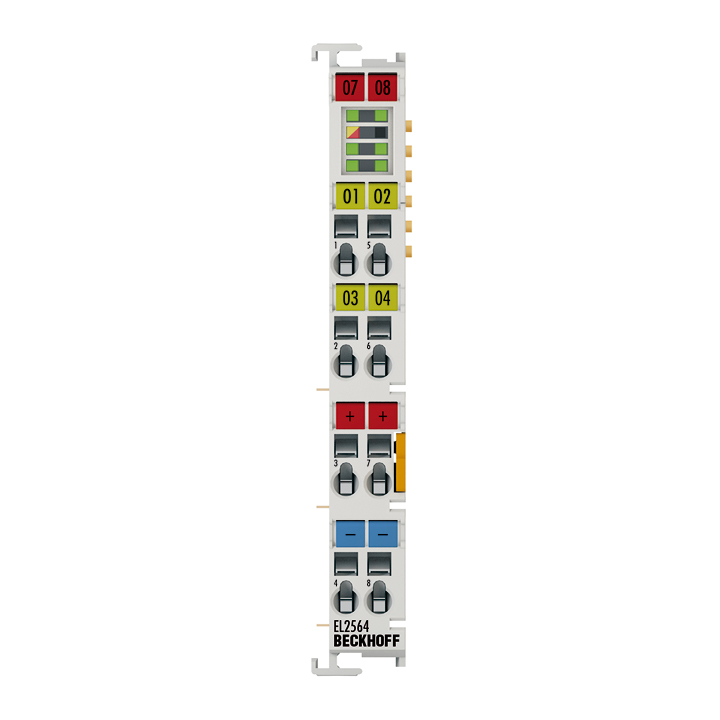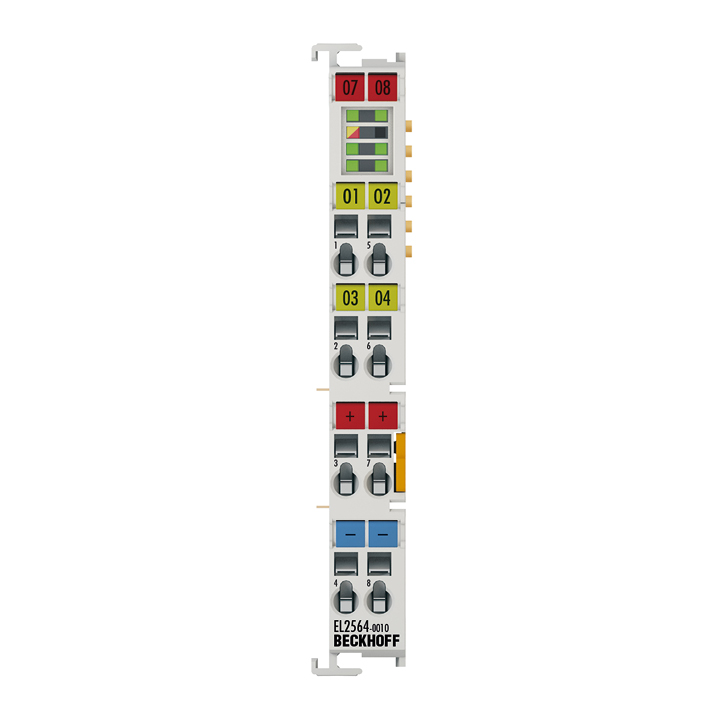The EL2564 digital output terminal for cost-effective control of LEDs with integrated series resistor via an adjustable (ground-switching) PWM signal.This terminal with its 4 channels, the flexible output voltage and various adjustable parameters offers a flexible, simple and at the same time also powerful option for lighting control.
More about this video

EL2564 | EtherCAT Terminal, 4-channel LED output, 5…48 V DC, 4 A, RGBW, common anode
The EL2564 digital output terminal controls LEDs with integrated series resistor via an adjustable (ground switching) PWM signal. Common anode RGBW LEDs can be controlled with the four channels. The operation with four LEDs of the same color is also possible with the terminal. The terminal has a flexible input voltage of 5…48 V DC. The output voltage corresponds to the input voltage. For the operation of multicolor LEDs the color portion per channel is adjustable. Thus any color mix can be realized. In addition to the color mixing per channel, the adjustment of the total brightness over all channels is also possible. Another parameter that can be adjusted is the frequency. By setting the frequency in a range of 1…16,000 Hz, stroboscopic effects can be avoided. Furthermore, visible flashes can be realized by the low frequencies.

EL2564-0010 | EtherCAT Terminal, 4-channel LED output, 8…48 V DC, 3 A, RGBW, common cathode
The EL2564-0010 digital output terminal controls LEDs with integrated series resistor via an adjustable (ground switching) PWM signal. Common anode RGBW LEDs can be controlled with the four channels. The operation with four LEDs of the same color is also possible with the terminal. The terminal has a flexible input voltage of 8…48 V DC. The output voltage corresponds to the input voltage. For the operation of multicolor LEDs the color portion per channel is adjustable. Thus any color mix can be realized. In addition to the color mixing per channel, the adjustment of the total brightness over all channels is also possible. Another parameter that can be adjusted is the frequency. By setting the frequency in a range of 1…16,000 Hz, stroboscopic effects can be avoided. Furthermore, visible flashes can be realized by the low frequencies.